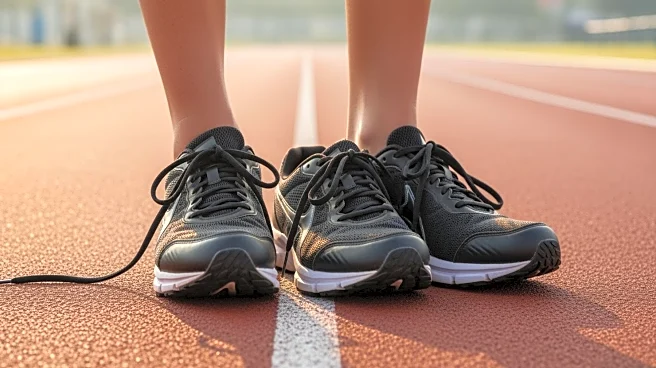What's Happening?
A recent article discusses the average 5K running time for men and provides a comprehensive six-step plan to improve performance. According to data from RunRepeat, the average finish time for a 5K among
UK male runners is 29 minutes, while a good time is considered to be 22:31. The fastest recorded 5K time by a man is 12:51. Nicklas Rossner, a performance specialist, offers advice on how to train effectively for a faster 5K. His recommendations include using a pyramidal training approach, focusing on running efficiency, improving form under fatigue, aiming for negative splits, fueling well before the race, and training smarter by reducing overall mileage while maintaining intensity.
Why It's Important?
Improving 5K running times can have significant benefits for cardiovascular health and overall fitness. The advice provided by Rossner is particularly valuable for recreational runners who may not have access to professional coaching. By following structured training plans, runners can enhance their performance, reduce injury risk, and achieve personal fitness goals. This information is crucial for those looking to balance busy schedules with effective exercise routines, promoting a healthier lifestyle. Additionally, understanding average times and training methods can motivate runners to set realistic goals and track their progress.
What's Next?
Runners who adopt the suggested training methods may see improvements in their 5K times over the coming weeks. As they implement these strategies, they might also explore additional resources or seek guidance from local running clubs to further refine their techniques. The focus on efficient training and proper nutrition could lead to broader discussions on fitness and health within the community, encouraging more individuals to participate in running events and adopt healthier habits.
Beyond the Headlines
The emphasis on running efficiency and form highlights the importance of biomechanics in sports performance. As more runners become aware of the benefits of proper form, there could be increased interest in sports science and physiotherapy. This shift may lead to advancements in running gear and technology designed to support efficient movement and reduce injury risk. Furthermore, the focus on nutrition underscores the role of diet in athletic performance, potentially influencing dietary guidelines for athletes.










